A minimalist person is someone who has a simple, uncluttered lifestyle. They don’t believe in owning things for the sake of owning things — they only keep what is truly important to them. Minimalists are often very organised and efficient and find satisfaction in pursuing meaningful relationships and activities.
Despite this, minimalists are frequently viewed as emotionless, privileged, dull, clinical and extreme.
Yet some of the most exciting and dynamic individuals in history practised minimalism. Mahatma Gandhi and Steve Jobs ruthlessly pursued simplicity and changed the world.
So what does a minimalist person look like? What are the defining qualities of this type of individual? In this post, I share 14 characteristics that define minimalists.
Keep in mind that there is no one-size-fits-all definition of minimalism. You may identify with only a few of these qualities, while others may identify with most or all of them.
If you’re interested in becoming a minimalist, it’s essential to figure out which characteristics resonate with you and focus on cultivating those aspects of your personality.
1. Values white space
A minimalist wants white space across all areas of life. This means more empty space in your calendar, room to think and breathe. And, of course, space in your physical environment.
If anything, creating white space is actually what drives minimalists to minimise. Space is a resource that creates the opportunity to design your life with intention and make room for experiences that matter most.
Without space, we’re trapped in complexity, busyness and, ironically, constraints. We become slaves to our schedules, tasks, things and toxic relationships.
A minimalist person is skilled at creating and holding onto space no matter how much is going on in their lives.

2. Drained by overconsumption
Minimalists are borderline allergic to the bright lights of excessive consumerism. Spending their waking hours in shopping malls, online stores, taking advantage of sales, or just being around consumerism zaps their energy.
While minimalists appreciate possessions, they realise that more isn’t necessarily better and that “things” can never fill the voids in our lives.
On a deeper level, many minimalists have an innate sense that rampant consumerism is detrimental to our planet and its inhabitants. They understand that we can’t keep contributing to the overabundance of things and expect the planet to remain healthy and sustainable.
So they make a conscious choice to consume less, which generally leads to a simpler and more fulfilling life.
Read more: 10 Simple Steps To Get Started With Eco-Minimalism
3. Loves to maximise what they have
A minimalist person is resourceful and knows how to make the most of what they have. They don’t need a lot of things to be happy and content — quite the opposite. They feel burdened by too many possessions.
When deciding to purchase something, they’ve thought about it carefully and determined that it will add value to their lives in some meaningful way.
Minimalists are also very good at taking care of their things. They don’t believe in planned obsolescence or disposing of items just because they’re no longer new or trendy.
When something breaks, they try to fix it instead of throwing it away and buying a new one. This not only saves them money but also reduces waste and clutter.
4. Sensitive to clutter
Minimalists are highly sensitive to clutter. They can’t stand being surrounded by too many things, especially if those things are useless or have no sentimental value.
It’s why minimalists are often drawn to decluttering and simplifying their lives. It just feels better to them when their environment is clean and uncluttered.
Read more: 5 Warning Signs You Have Clutter Blindness (Including Solutions)
Some minimalists go so far as to live in tiny houses or travel with only a carry-on suitcase.
This might seem extreme to some people, but it just works for them.
It’s not that they don’t like stuff. They just prefer to surround themselves with fewer things and more space (see the first point).
This also goes for digital items. Minimalists are just as likely to declutter their computers, phones, and social media accounts as their physical spaces.
By reducing the amount of digital clutter, they free up time and mental space to focus on essential things.
5. Despises wasting time
Minimalists hate wasting time. They would much rather be doing something productive, creative, or enjoyable than sitting around watching TV, browsing the internet, or engaging in other forms of mindless consumption (unless that’s what they deem essential).
Read more: How To Stop Consuming Mindless Content And Be More Productive
To a minimalist, time is the most precious commodity they have. And they don’t want to waste it on things that don’t matter.
It’s why minimalists are often very selective about how they spend their time. And if they do commit to something, they usually give it their all and try to make the most of it — which leads to the next point.
6. Seeks depth
Whether it’s relationships, careers or hobbies, minimalists seek depth over breadth.
They would rather have a few close friends than a large group of acquaintances. They would instead do one thing better than many things mediocrely.
This isn’t to say that minimalists don’t like variety. But they realise that they can only give so much attention to any one thing.
And they would instead focus that attention on a few things that are important to them, rather than spreading themselves too thin.

Minimalists may have fewer things and activities but what they have is usually of great importance to them. This desire for depth leads minimalists to create rich and fulfilling lives. It’s addition by subtraction.
7. See minimising it as a fun challenge
A minimalist person likes to experiment and push their limits with how much they need.
It’s not that they’re trying to live in poverty or deprive themselves of things they need or enjoy. They just want to see how much they can simplify their lives without sacrificing their happiness or well-being.
Also Read => Simple & Unique Minimalist Engagement Rings
This often leads minimalists to live fascinating and unconventional lives. They’re always trying new things and pushing themselves outside their comfort zones.
Life is a never-ending experiment — and they wouldn’t have it any other way.
Read more: 5 Interesting Minimalism Challenges That Might Change Your Life
8. Practice detachment from things
Minimalists practice detachment from things, not people or experiences.
Material possessions are not the source of their happiness. So, even if they have stuff, they don’t let it control them or their lives.
This allows minimalists to live more freely and be less burdened by their possessions. And if they do lose something, it’s not the end of the world — because they know they can live without it.
So when you talk to a minimalist, you’ll notice that they’ll rarely hype up or feel overly proud about something they own or have acquired. Things that fall into the camp of “tools” — necessary items to accomplish something more meaningful.
9. Understand what’s enough
Many of us fall into the cycle of always wanting more, even when we have enough. Minimalists understand that enough is, well, enough.
This is particularly true when it comes to personal finance. Minimalists know that they don’t need to earn a high income to be happy. They also know that they don’t need to spend a lot of money to live a good life.
They’re content as long as they have enough to cover their basic needs and enjoy a few simple luxuries.
Read more: A Minimalists Guide To Debt-Free Living
Of course, this doesn’t mean minimalists are against making more money or acquiring more things. But they realise that these things won’t make them any happier — and, in fact, may even lead to more stress and anxiety.
10. Less materialistic
No one can escape materialism—even minimalists.
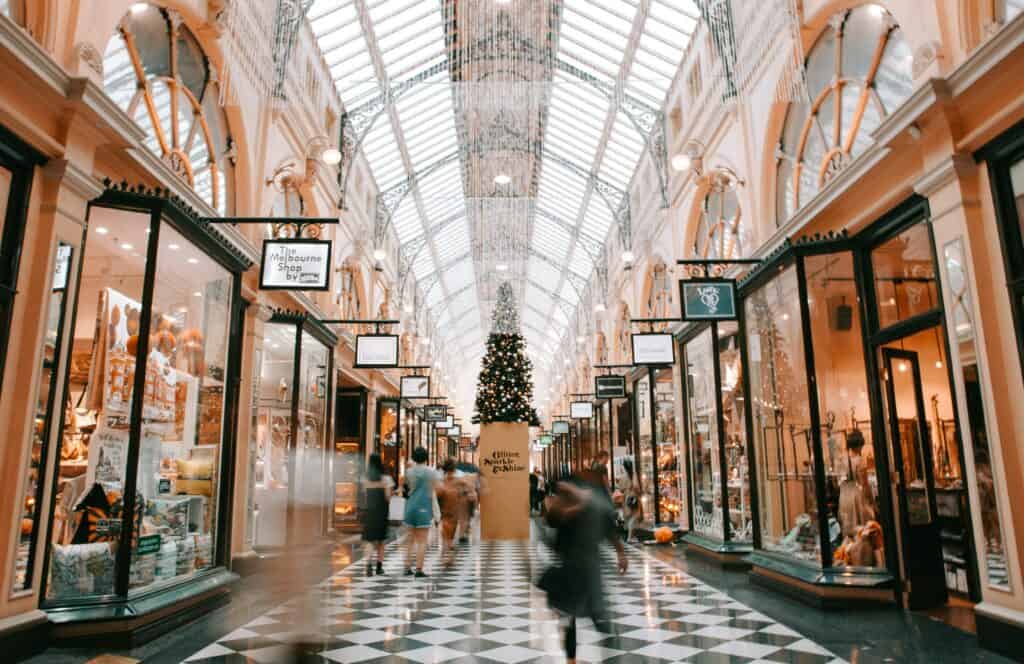
It’s human nature to care about what others think of us. But this usually leads to wanting to prove ourselves through our things, houses, clothing, jobs, spouses, kids, schools, neighbourhoods or social media followers.
Minimalists have learned to question these cultural norms. They realise that they don’t need to keep up with the Joneses. They know that their worth is not determined by their stuff or what others think of them — so they fight to stay in their lane, tune out the noise and be less materialistic.
11. Live for experiences
Minimalists live for experiences, not things. An enjoyable phone call with a friend, hiking in nature, or playing music are examples of the moments minimalists create space for.
They would rather spend their money on travel, concerts, events, meals out — anything that will give them new and memorable experiences.
They know that these experiences will enrich their lives (as well as those close to them) much more than any material possession ever could.
12. Slow shoppers
Minimalists understand that impulsive purchases increase the odds of getting things you don’t need, leading to more clutter.
Instead, minimalists are meticulous when they need to buy something. Shopping isn’t a hobby or a way to kill time. Shopping is a matter of execution.
This mentality leads to slowing down the purchasing cycle, selectively adding items to the wishlist, and being patient in finding the right product.
Read more: 15 Minimalist Shopping Tips To Help You Master Your Temptations Today
And for some minimalists, it’s important to support businesses with a sustainable and ethical supply chain. Because it’s not about the stuff at the end of the day. It’s about how that stuff was made and who it was made by.
13. Confidently say no
Minimalists have learned the power of saying no. No to things they don’t need, want or enjoy. Say no to experiences that don’t align with their values. No to things that would distract them from what’s important.
Saying no frees up time and energy for minimalists to focus on what matters most to them. For example, a minimalist might say no to a last-minute invitation to a party so they can stay home and spend time with their family.
Or they might say no to a work project requiring them to sacrifice their personal lives.
Of course, minimalists still appreciate socialising, working hard and adhering to their responsibilities. But they know how to draw the line and confidently say no when necessary.
14. Courageous
Last but not least, minimalists are incredibly courageous. They have the courage to downsize their lives to allow them to live with intentionality.
They dare to let go of things that may or may not add value. Minimalists dare to question society’s definition of material success and do things on their own terms.
Most importantly, minimalists are courageous enough to hit reset on their lives at any given moment when they sense complexity has crept back in. Minimalists live for a blank canvas. A cleared hard drive or whatever metaphor you want to use.
Bottom line. Minimalists don’t settle, accept or give in to the cycle of physical, digital and mental clutter.
It takes courage to be simple. Remove when it’s easier to add. This, to me, is one of the most defining traits of a minimalist person.
The characteristics of a minimalist person
Minimalism is a lifestyle that’s rooted in freedom, creativity and happiness. It’s the complete opposite of materialistic culture — a society where we are constantly told to obtain more things because it will make us happy or successful.
Suggested Read => Minimalist Clothing Styles
But minimalists have learned these principles and know better than anyone how this isn’t true. Living with less means you’re free to live more.
Which one of these minimalist qualities resonated with you the most? Let me know in the comments below.

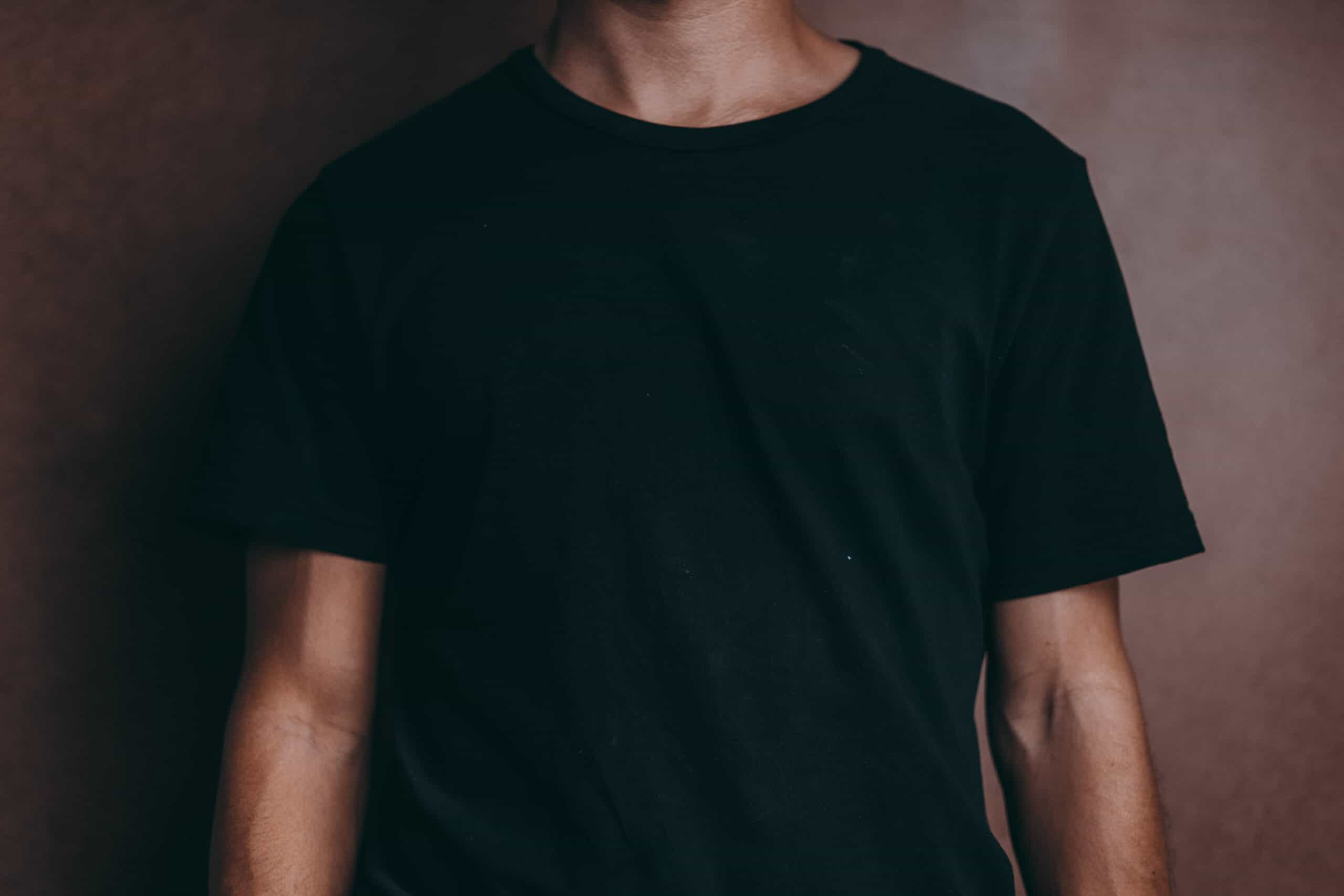
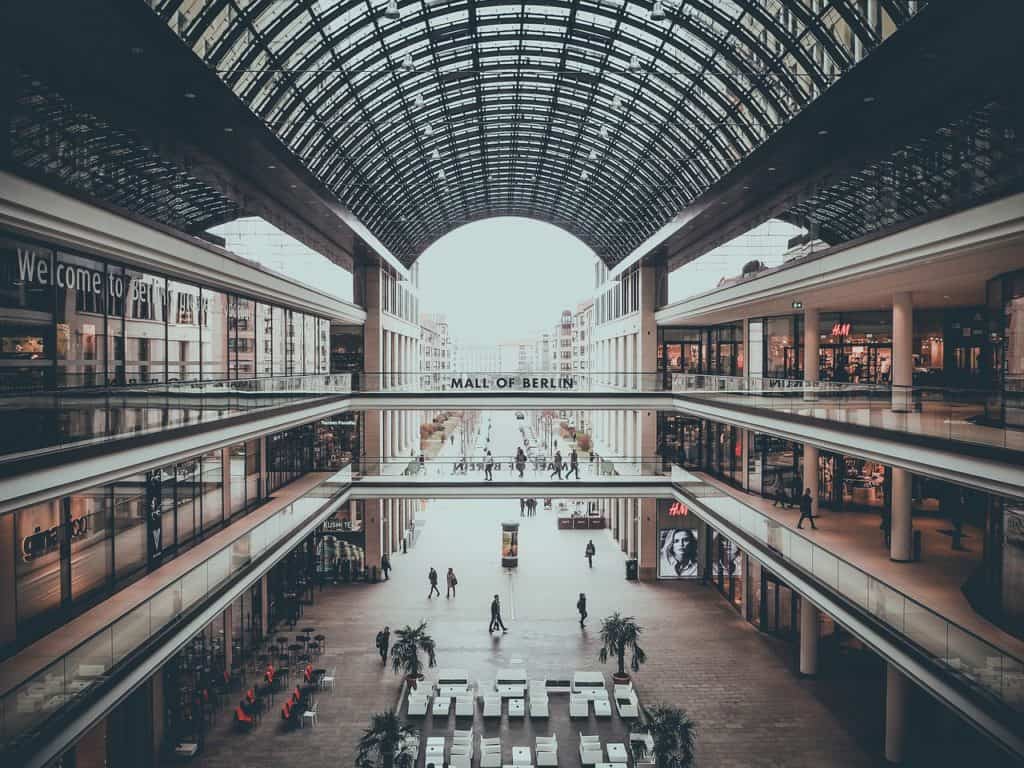
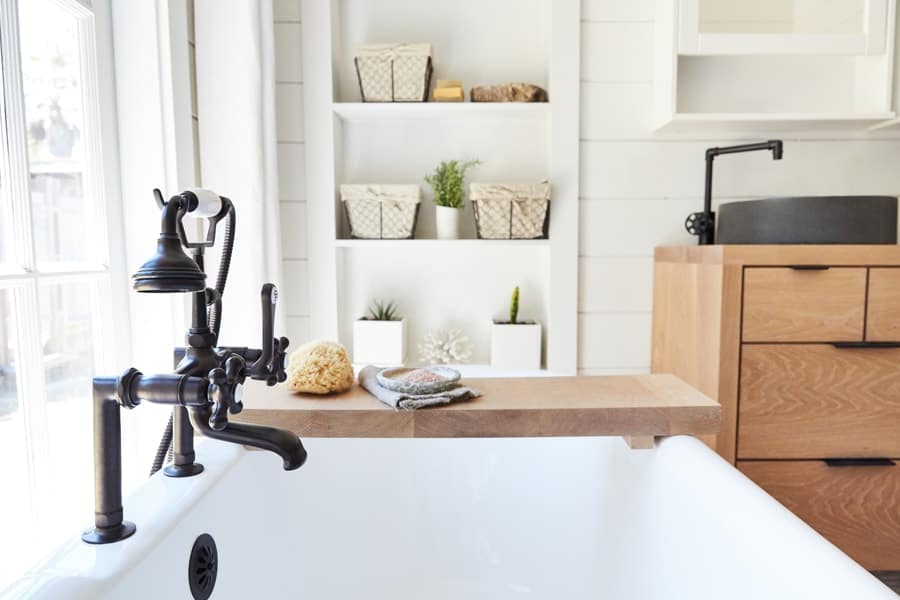
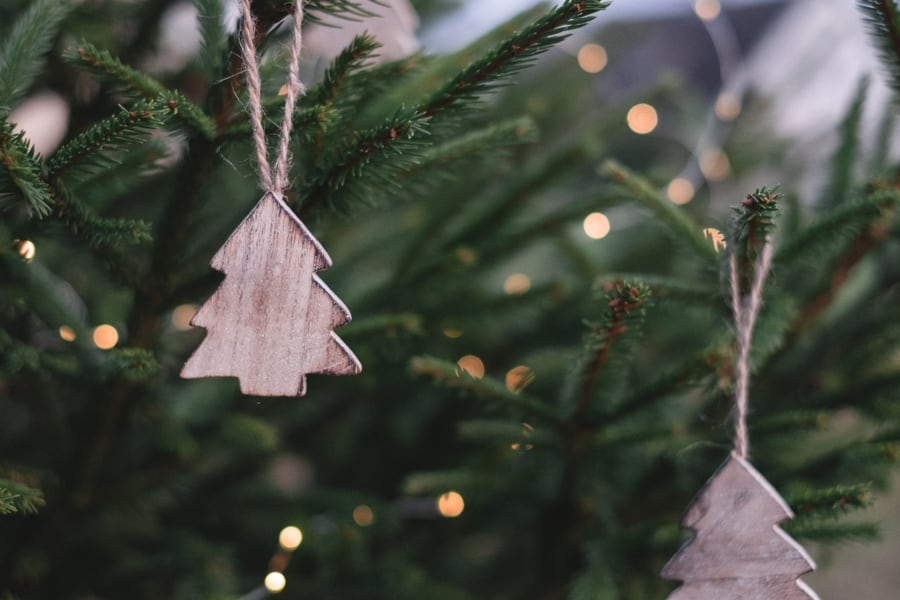
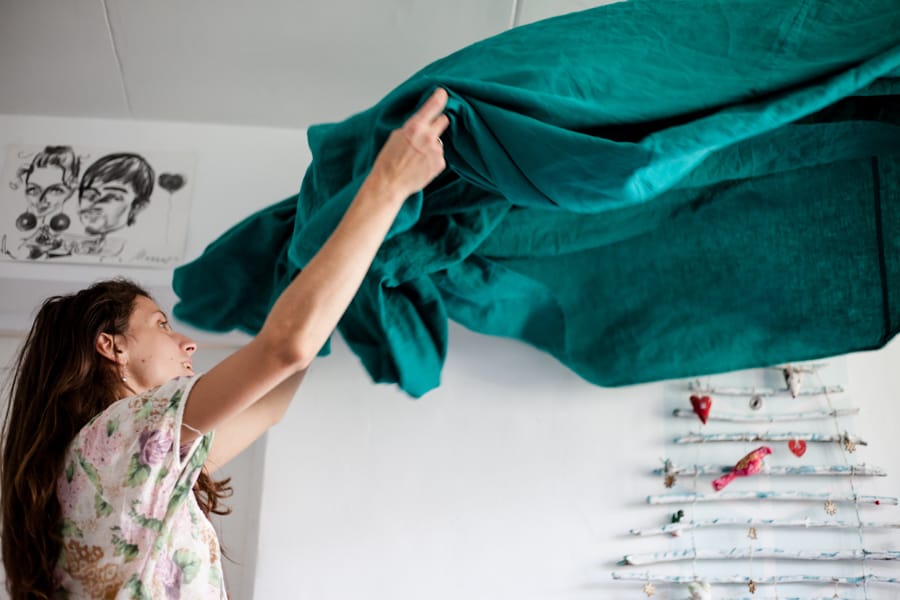
After reading this, I realize I’ve been a minimalist much longer than I have claimed the label. Our walls have always been bare, I’ve always regularly cleared out the excess from my digital life, and shopping (even for groceries) has never been something I enjoyed, just for starters.
For all 40 years of our marriage whenever my husband or kids ask what I want for Christmas or my birthday, my standard answer has been “a grand piano”. I say this because yes, I really would love and use daily a grand piano, but also because there is no way on earth we could afford or house one and we all know that. Its my way of saying I sincerely don’t want anything at all. Now that we have grandkids they insist I come up with something else, so I go with “soap”. My grandkids give me fancy homemade soap and I haven’t had to buy any for the last 5 years. Life is very good.
Hello,
Thank you for sharing this very interesting piece of writing!
I have searched the web for a description of ‘a very simple personality’ in an attempt to understand which personality category I best fit into, and noticed that minimalism is one of them.
People tend to see minimalists as cheapskates or stingy beings, but the truth is that we don’t need many material things to be happy. We feel fulfilled with a limited range of objects and resources that serve our purposes in very meaningful ways. The same idea applies to the social life sphere; a few real friendships can optimise minimalists’ emotionality and personal development better than 1000 followers on Instagram.
Also, I have decided not to learn to drive to avoid pollution, stress, costs and worries. Everyone is discombobulated when I tell them that at the age of 37 I still haven’t learnt to drive and I am not interested in learning either. I just feel much freer not depending on a car and all the burdens that go with it. The public transport system in Montreal is pretty good; I can sit back and relax while looking out the bus or subway windows.
Moreover, I tend to enjoy and get to know well the place I live in rather than think about travelling elsewhere. Sometimes locals know other countries better than their own nation, which sounds ironic.
In a nutshell, having less doesn’t equal enjoying less. In fact, the equation of happiness for minimalists comes down to the following rule:
Simplicity = a less stressful and more enjoyable and qualitative life.
Some of the proverbs and sayings that illustrate what minimalists are like are:
1. Don’t bite off more than you can chew.
2. Slowly, but surely
3. A bird in the hand is worth two in the bush
4. Quality over quantity
5. Beauty is in the eye of the beholder (not in the eyes of the mainstream society)
6. A blessing in disguise (What may look bad at first ends up being a precious stone)
7. All that glitters is not gold (Mainstream society may cast a glittering light on a flamboyant and conspicuous picture of the reality they want to portray as ‘happiness’, but we, minimalists, have an eye that is not easily caught by it.)
Thank you for reading!
Jonatan
spot on i am as you say, nothing in the material world or spiritual world attracts me, and i love the freedom of it.
Absolutely Agree with this!!!
All of this is me I never want anything for Xmas or birthday I just don’t like stuff I like white empty house with no clutter, to much clutter makes me ill, I’ve always thought I’m a bit strange but it seems there are lots of us about
Absolutely Agree with this!!!
I am just like you with regard to birthday or Christmas presents. I neither like much stuff on the walls such as cramped decorations or several pieces of furniture. I would make my own dinner table from cardboard boxes.
This is a great read and was an enlightening experience for me. Recently I’ve been told by some close to me that I need to “want more.” I tried to explain that what I want can’t necessarily be found in buying things I think I don’t need. I struggled to define to myself what this was if I truly was limiting myself because of a deep rooted fear or if I just wasn’t interested in “things.” This article assisted in helping me define that. I resonated with numbers 1-6 and number 12 the most. Thanks for writing this.
Thanks for this article. Fairly new to minimalism and already trying to define this as a new chapter in my life. I share many of the traits you outline but particularly the need for white space both physically and mentally. It’s definitely a challenge as I have a wife and 2 children so life is pretty hectic in one form or another! My wife is slowly moving in the same direction – so hopefully we will both enter into it all fully and connected.
Quick question that I’d hoped you could help with… do you have any examples or advice around scenarios when one person wants to embrace minimalism but their partner doesn’t want to go in the same direction?
Thanks again for the article – looking forward to checking out the rest of your website.
Hi Ed, what an exciting chapter of life for you. We haven’t written an article, but we did record a podcast episode about encouraging minimalism without being pushy. After your comment, we’ll look into converting the episode into an article.
Its such a pity that more people, especially Christians, don’t commit themselves to living simply, in order to follow Christ more closely and also so that others may simply live. The idea that development and progress are about having more and bigger possessions should be rejected as dangerous and destructive.
You defined a minimalist person the best possible way.. This gives great joy to me that I possess these qualities..
Fantastic!